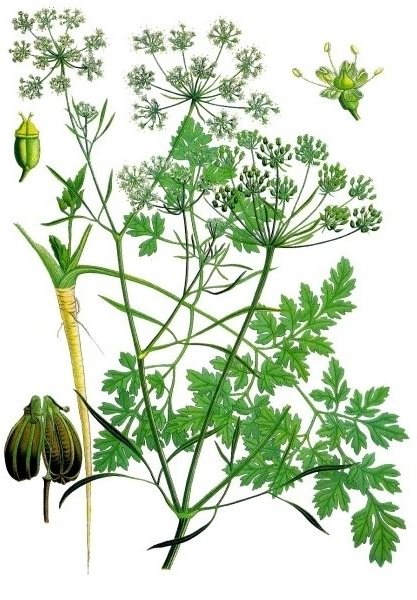Learn the Health Benefits of Parsley
Health Benefits of Parsley
Parsley has been cultivated for over 2,000 years and was used medicinally before being consumed as a food. The ancient Greeks considered parsley sacred and would crown the winners of major athletic contests with wreaths of parsley and also decorate tombs of the deceased.
Parsley is the most popular culinary herb in the world and is packed with vitamins and minerals. It is a very good source of B vitamins (thiamin, riboflavin, niacin, pantothenic acid, folate, and B6), vitamin C, vitamin K, calcium, iron, magnesium, phosphorus, potassium, and zinc.
Parsley also contains the following:
Protein
20% of parsley is protein. Protein is essential for growth and repair of tissues.
Fiber
Fiber maintains a healthy digestive tract and helps lower cholesterol.
Flavonoids
Flavonoids have antioxidant properties and can help prevent and repair damaged cells from free radicals.
Beta carotene
Beta carotene converts itself into vitamin A when the body needs it and is a powerful antioxidant.
Alpha-linolenic acid
Alpha-linolenic acid is an essential fatty acid.
Chlorophyll
Chlorophyll is the green pigment of plants that freshens bad breath by killing offensive bacteria.
Fluorine
Fluorine protects the surface on bones and teeth.
Volatile oils
Myristicin, one of the volatile oils, can help neutralize certain carcinogens like benzopyrenes (found in cigarette smoke). According to animal studies, myristicin can inhibit tumor formation, especially in the lungs.
Health benefits of parsley include:
- helping in the prevention and treatment of anemia
- enhancing the immune system
- helping in the prevention of night blindness
- clearing toxins from the body
- helping in the prevention of rheumatoid arthritis
- inducing menstruation
- helping in the prevention of colon cancer.
Quick Serving Ideas
- Sprinkle chopped parsley on grilled fish, vegetable sautes, or salads.
- Add parsley to soups, tomato sauces, or pesto sauce.
- Combine chopped parsley, lemon zest, and garlic. Rub on chicken or beef.
- Prepare a colorful salad with parsley leaves, cherry tomatoes, orange slices, fennel, and pumpkin seeds.
You can also get the many health benefits of parsley by making a tea:
- Boil 4 cups of water, remove from the heat, add 4 heaping teaspoons of fresh parsley (finely minced - best to include stems and roots), stir, steep for 20 minutes, and strain. You can drink it hot or cold. It can be reheated, but do not boil it.
To store fresh parsley, place in a plastic bag and keep it in the refrigerator. If it’s slightly wilted, sprinkle some water on it before storing. Store dried parsley in a tightly sealed container and keep it in a cool, dark, and dry place.
Disclaimer
Please read this disclaimer regarding the information contained within this article.
